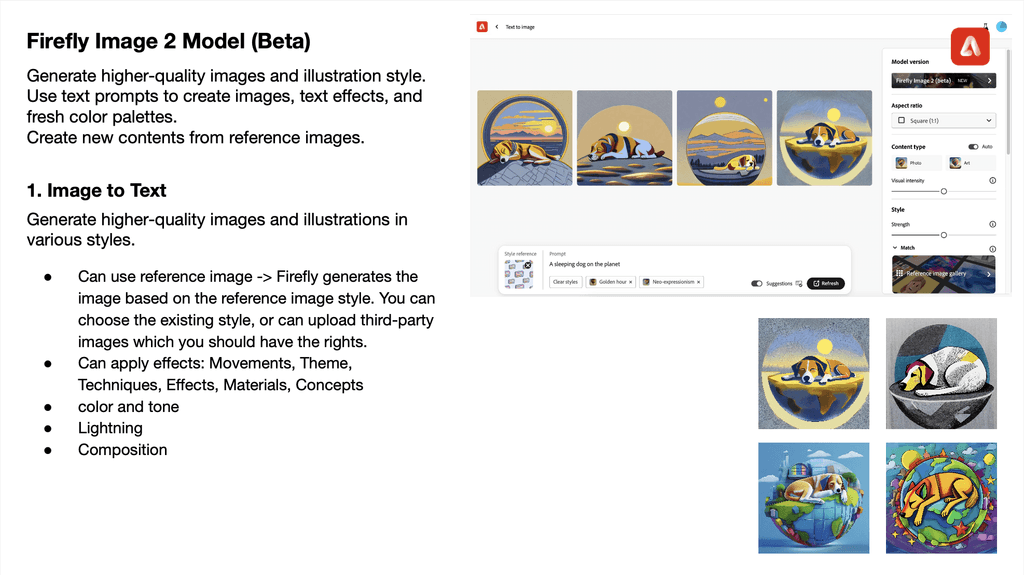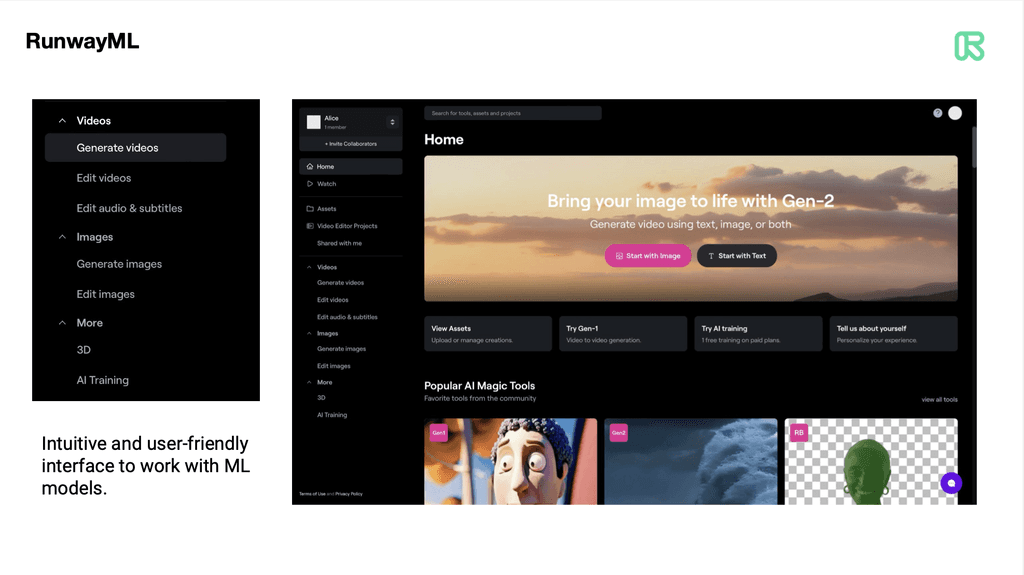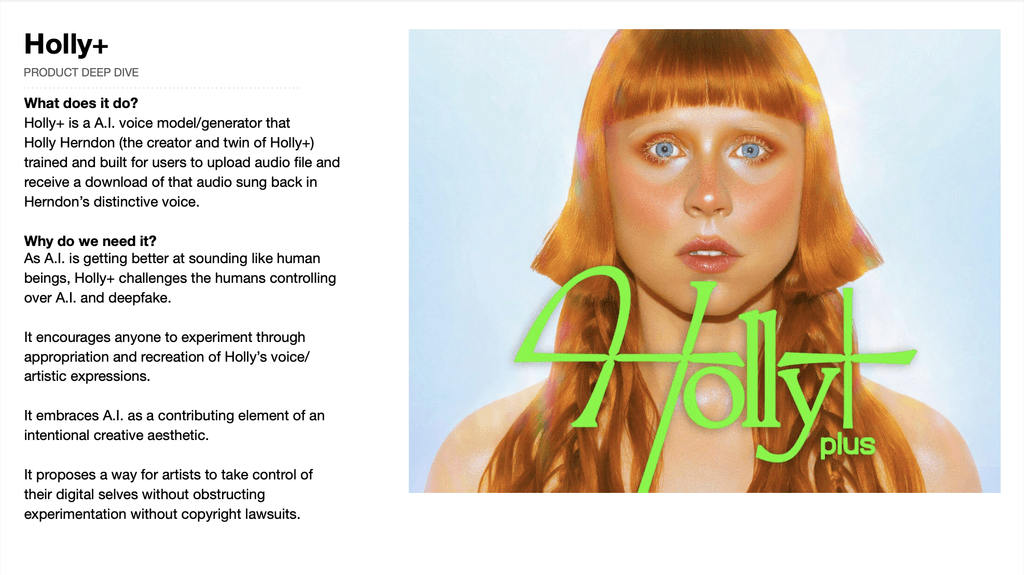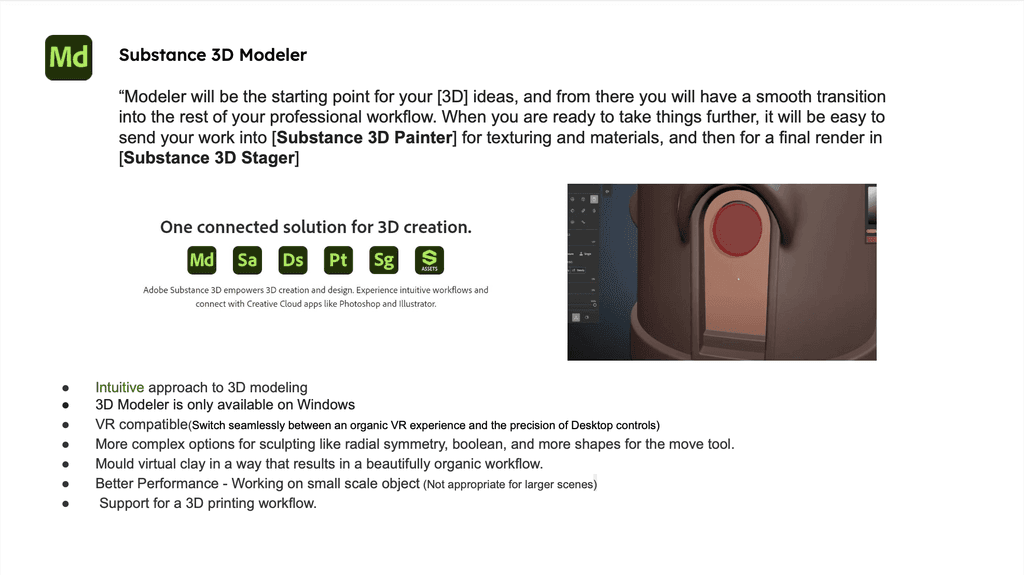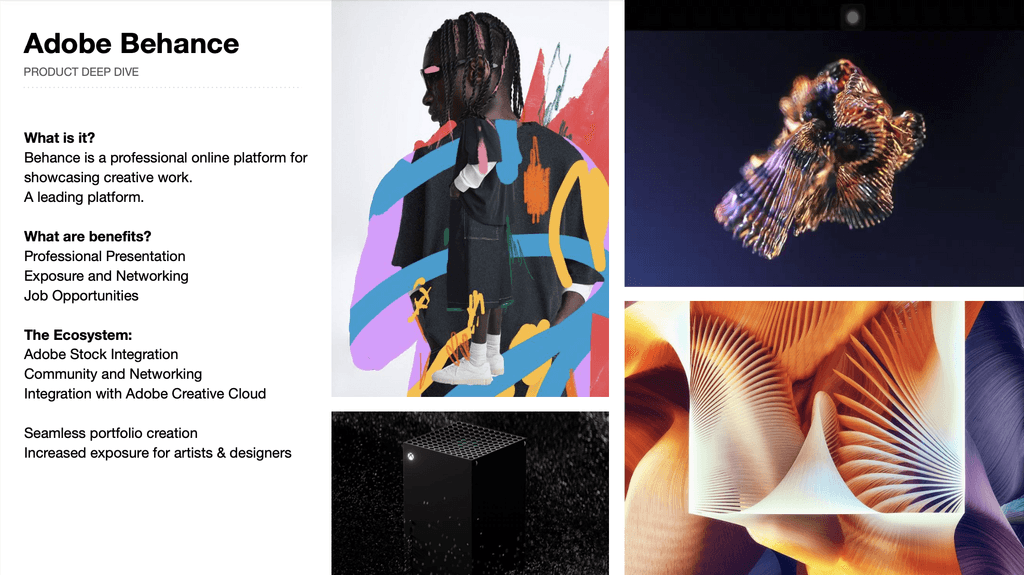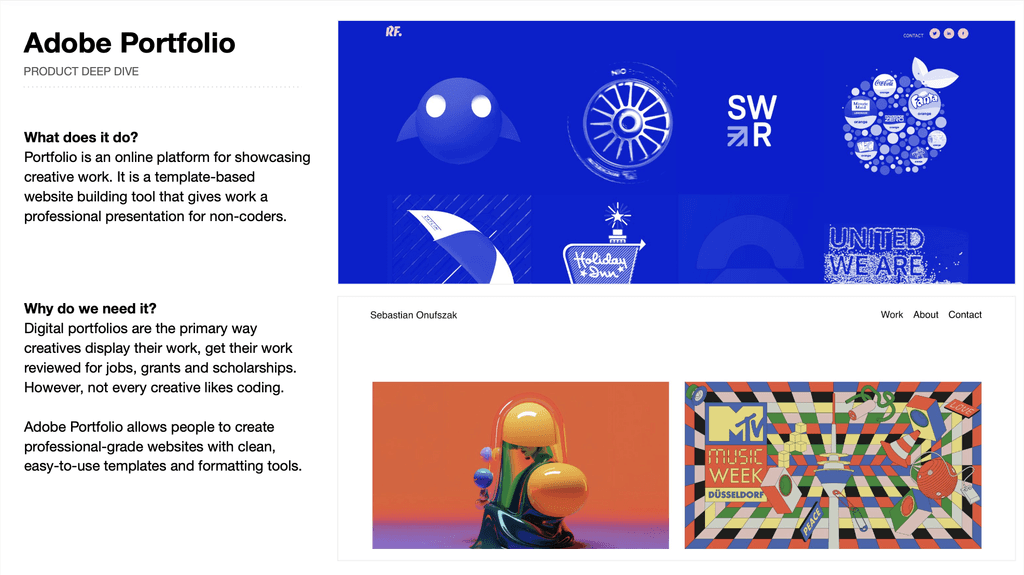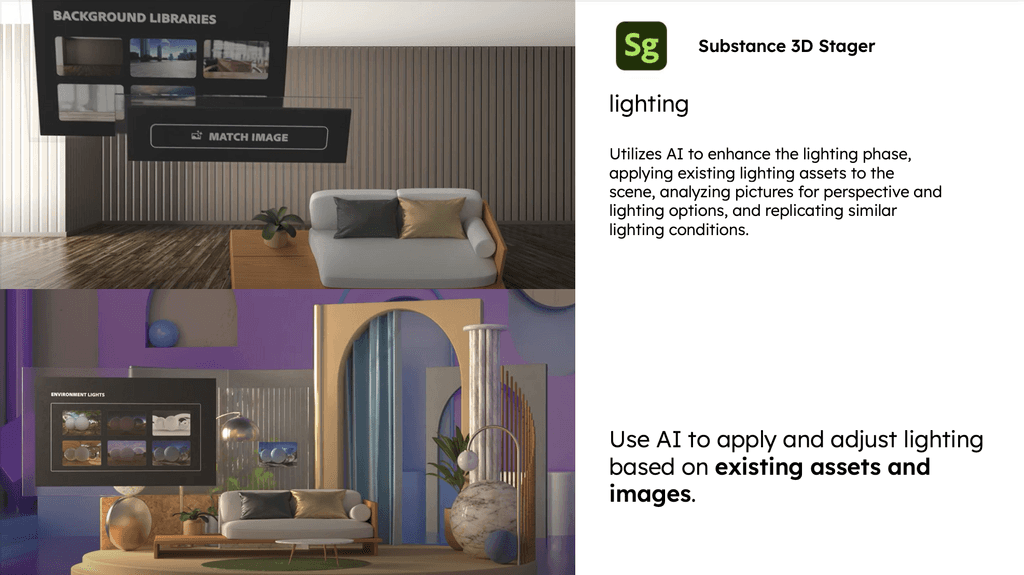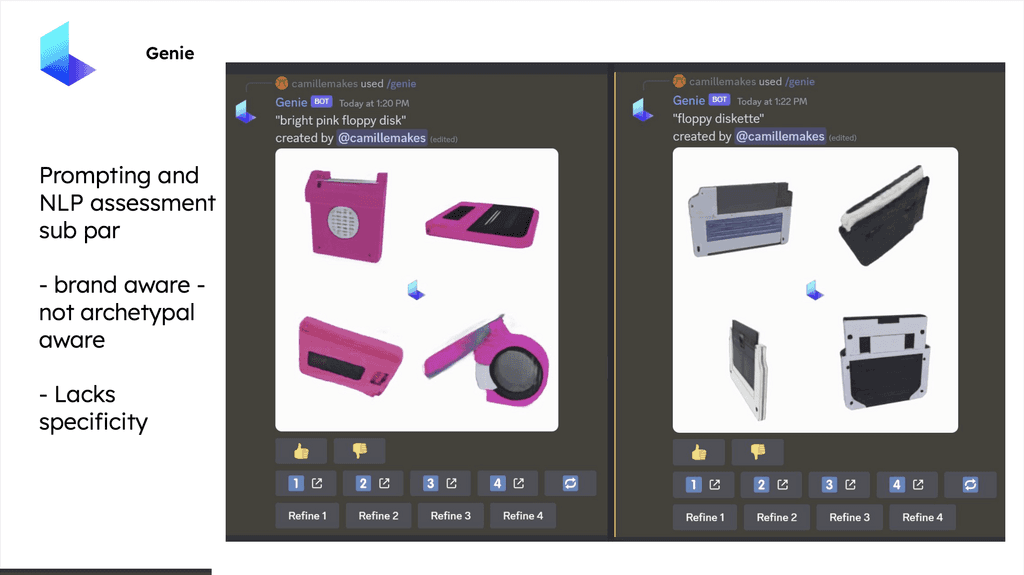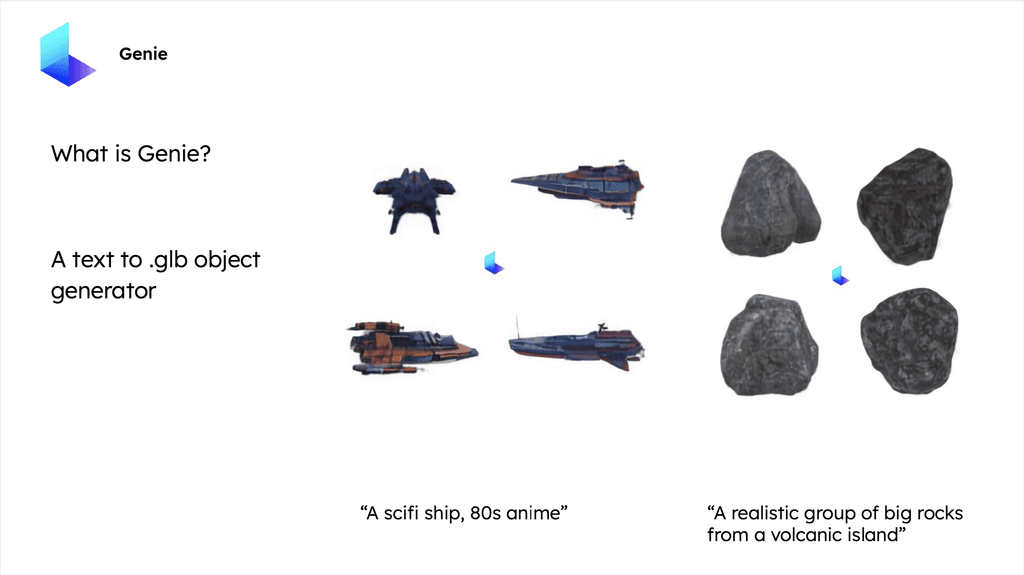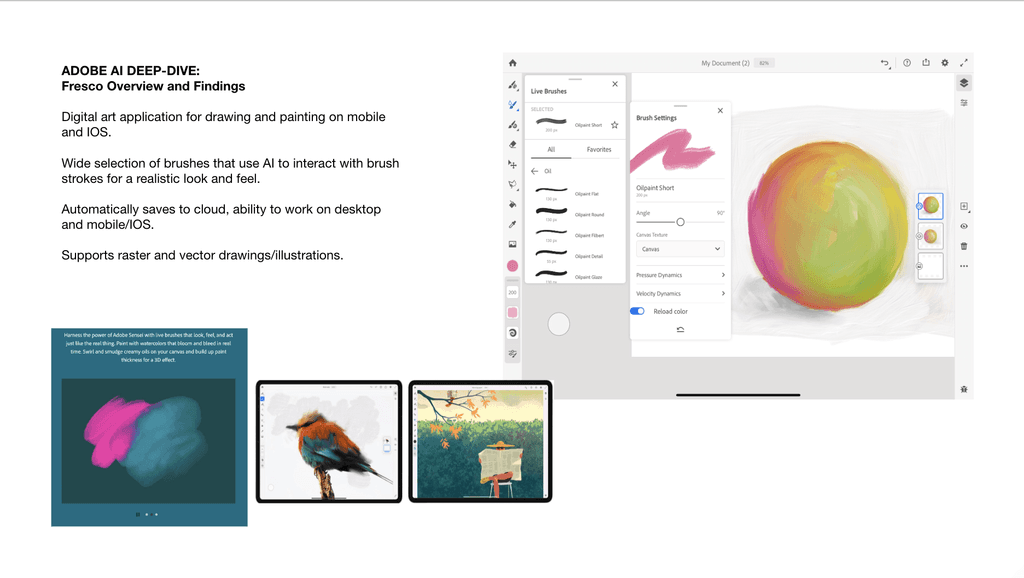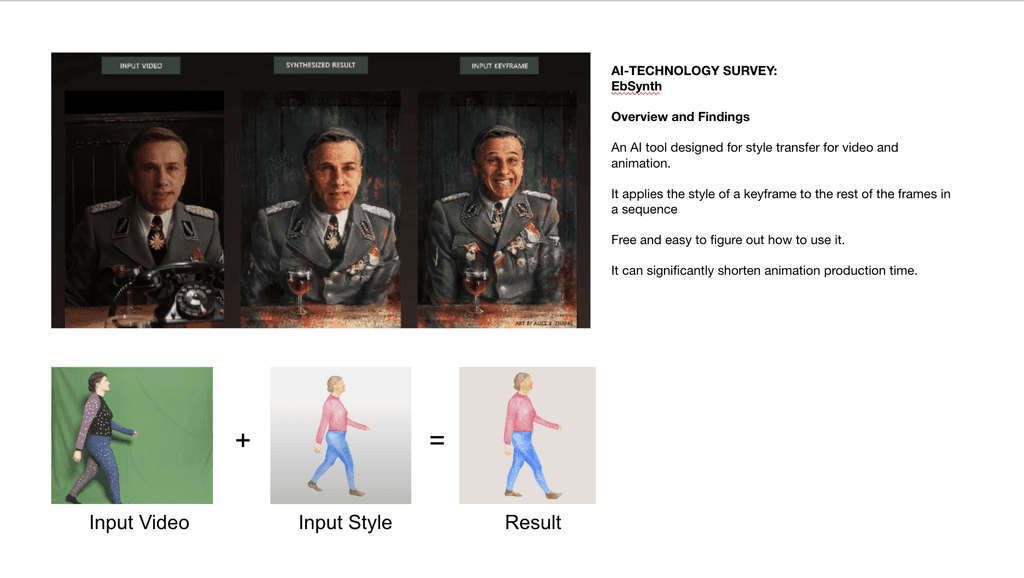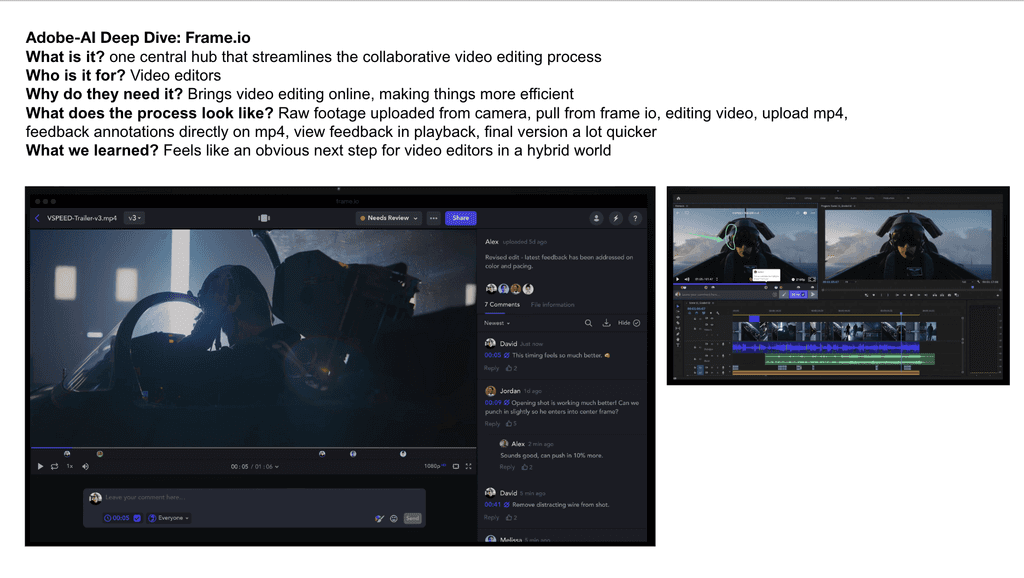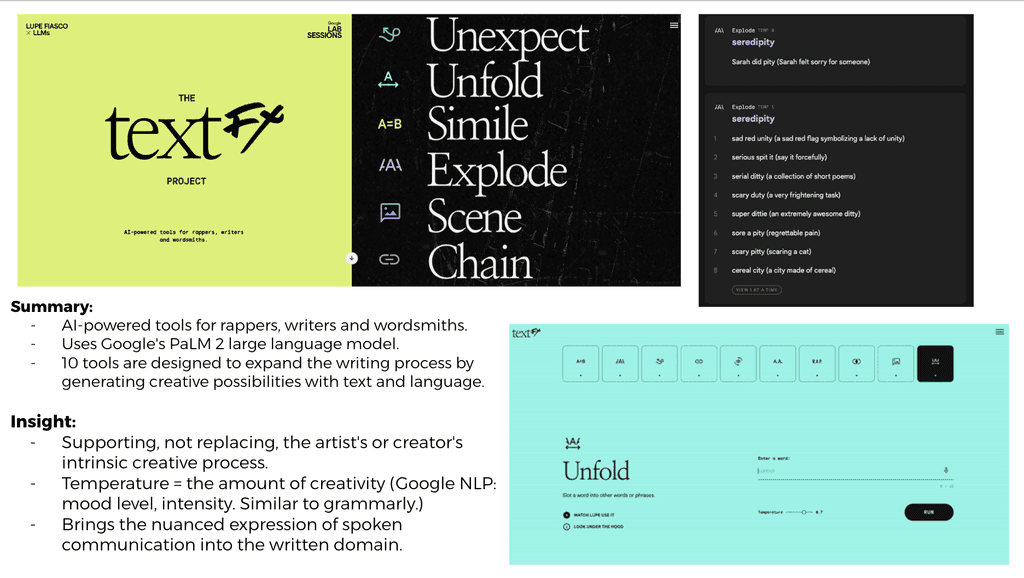

Project Brief
Investigate & Imagine the creative’s relationship with AI technology. Explore how AI might support creator’s work, collaborations, & creative toolsets.
- Selected as UX designer for ArtCenter & Adobe DesignStorm on future of Generative AI in a
designer's workflow.
- Collaborated with cross-decipline teams to deliver design solutions and high-fidelity prototype.
- Received high approval form Adobe Generative AI Design leader, providing valuable direction for the subsequent product development.
Sep 2023 - Dec 2023
UX Design
Experience Design
Interaction Design
My Contribution
UX Research
Product Design
Interface Design
Interaction Design
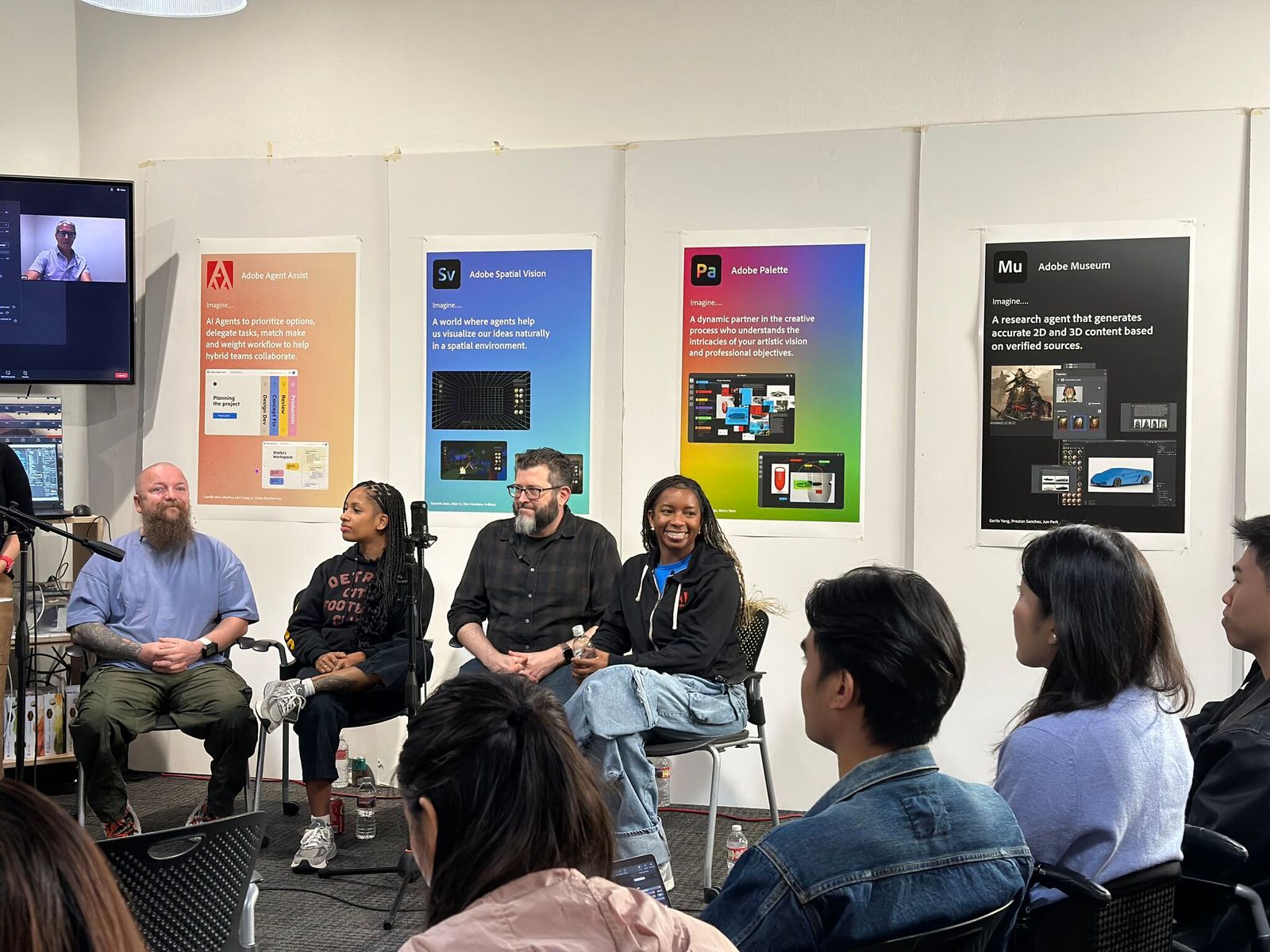
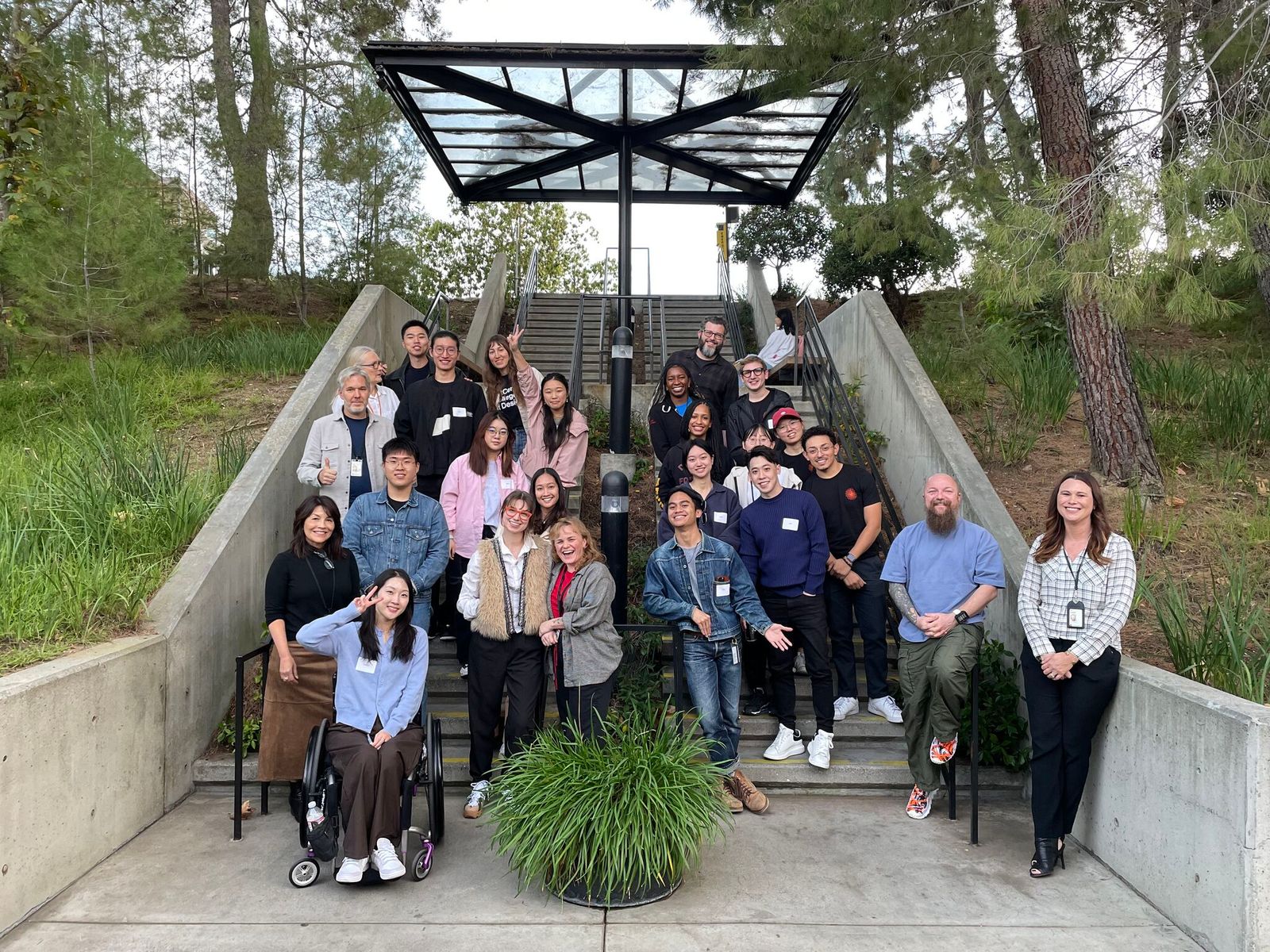
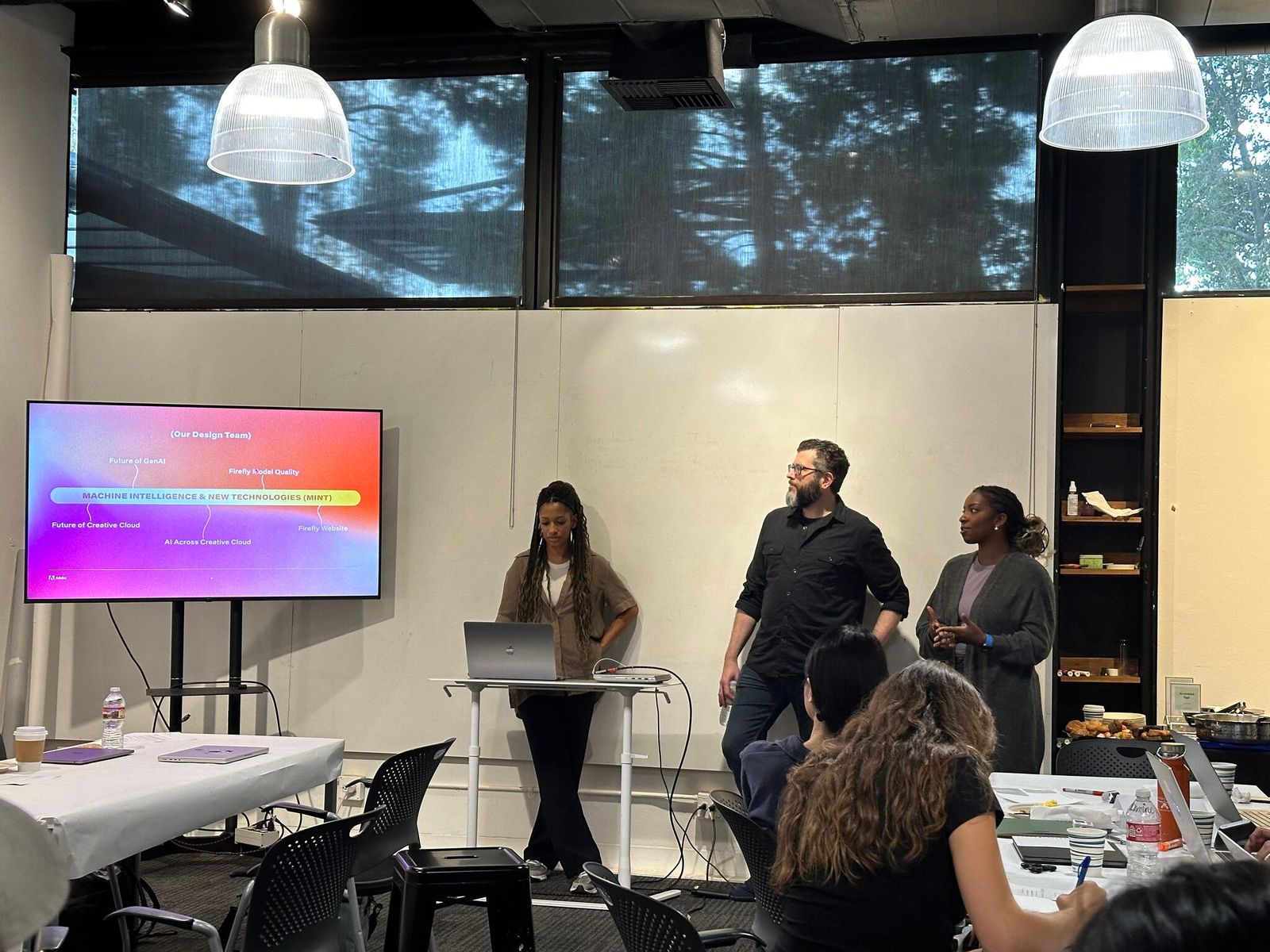
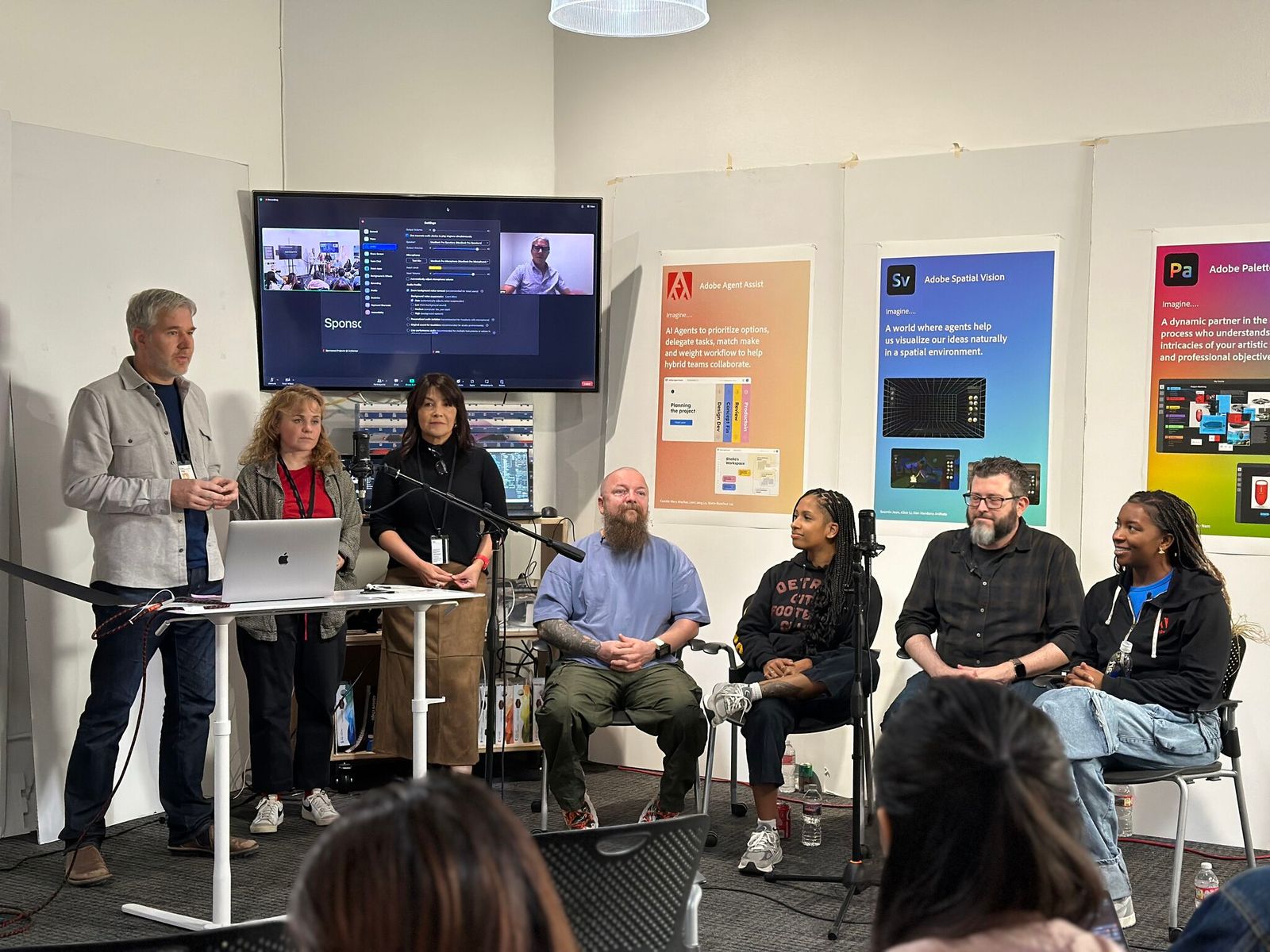
Prior Designer Tools & AI Tools Research
Explore various GenAI applications and possibilities

Outcome
Sorry, due to NDA, I can not share for now
Terms
Artificial Intelligence
The intelligence of machines or software, as opposed to the intelligence of humans or animals. It is also the field of study in computer science that develops and studies intelligent machines. “AI” may also refer to the machines themselves.
Machine Learning
The use and development of computer systems that are able to learn and adapt without following explicit instructions, by using algorithms and statistical models to analyze and draw inferences from patterns in data.
Datasets
A collection of various types of data stored in a digital format. Data is the key component of any Machine Learning project. Datasets primarily consist of images, texts, audio, videos, numerical data points, etc., for solving various Artificial Intelligence challenges such as. Image or video classification.
Training
A process in which a machine learning (ML) algorithm is fed with sufficient training data to learn from. When you train AI, you’re teaching it to properly interpret data and learn from it in order to perform a task with accuracy.
Agent
An independent program or entity that interacts with its environment by perceiving its surroundings via sensors, then acting through actuators or effectors. A learning agent in AI is the type of agent that can learn from its past experiences or it has learning capabilities.
Cloud Computing
A network of remote servers hosted on the internet to store, manage, and process data, rather than a local server or a personal computer.
Key Insights
Generative AI does not substitute designers; instead, it empowers them to be more skilled, creative, and efficient.
1
Compare to designers, generative AI has limited creativity because its outcomes are based on existing patterns from the input dataset.
2
AI excels at rapidly grabing and summarizing essential data, including user research datasets, target user demographics, and company design guidelines, making it highly convenient for designers.
3
The biggest strength of generative AI compared to human designers is its unparalleled efficiency and productivity in creating work.
4
Generative AI empowers designers to create anything they envision, even if they lack specific skills.
*
In an AI-human collaboration scenario, AI augments the designer’s capabilities to achieve the best design outcome.
Users can provide specific inputs or conditions, such as text prompts or sketches, to guide the generation process, resulting in tailored and purposeful outputs.
Key Insights
Generative AI for E-commerce
1
Generative AI can help make exceptional experiences the norm
as it tailors each journey based on what it learns about the customer.
2
Many customers are still required to use the time-consuming method of entering search engine keywords to uncover the information, products, and services they seek.
3
When considering the use of generative AI, it’s crucial to understand the difference between probabilistic and deterministic outcomes.
